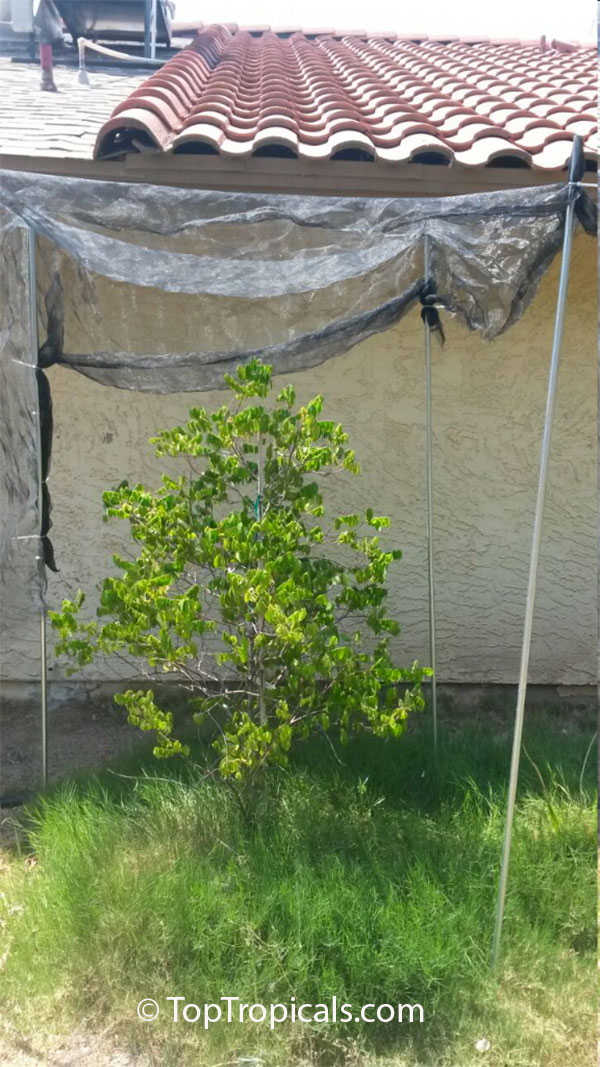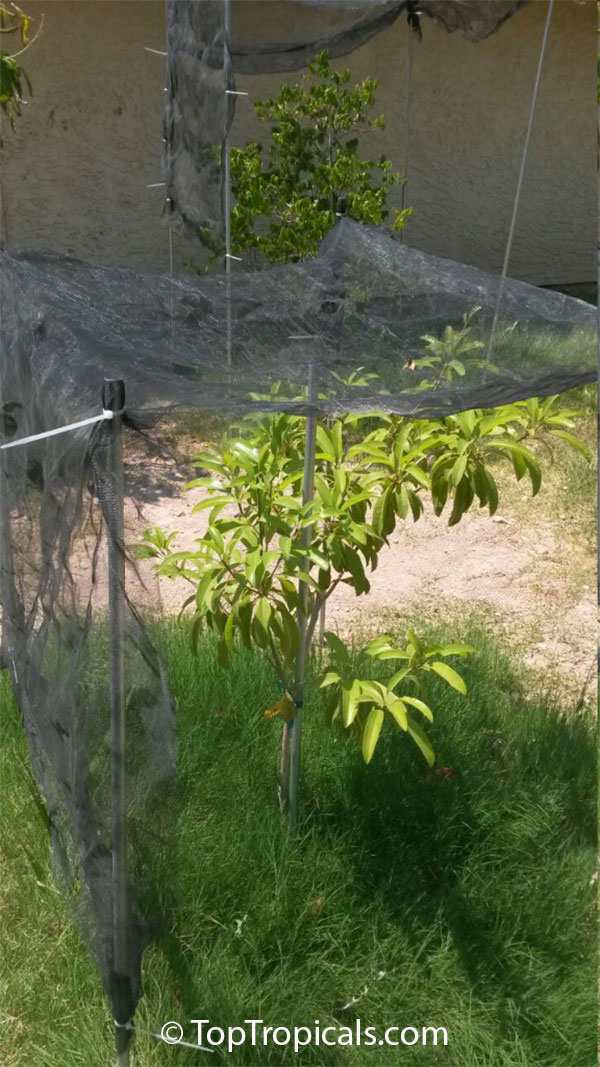Plant Clinic
Dealing with heat waves
Author: Arizona Gardener
If you live in Southwest, then you are familiar with heat waves, when temperature raises above 110F and up to 120F, while humidity is below 10%.
Scorching heat can damage and kill unprotected young plants. Especially if they're recently planted.
Most tropical plants came from humid tropics and they don't easily tolerate high temperatures and low humidity. You can tell such plants immediately. Desert plants have small, waxy succulent leaves, which are capable to reduce evaporation (see list of plants tolerant to hot and dry conditions). Tropical plants have large soft leaves and need high humidity. These steps will help to protect them:
1) Never keep potted plants out in a heat. It's a sure way to kill them quickly. Move pots in shady spots or even indoors if possible.
2) Carefully select planting spot. Avoid spots where a tree can get blasted by afternoon sun. Even if it requires full sun. Full sun in Arizona is too much. You can safely plant it in a bright shade. For example, north side of you house.
3) Use lots of mulch. Besides providing extra organics, it protects roots from overheating and keeps soil moist. The more mulch the better. Just make sure to keep it 1-2" away from the trunk. I use lots of mulch around trees and let grass grow on top of mulch. Happy grass is a good indicator of proper watering and sun protection. Notice dead areas on the photos, where there is no watering.
4) Use deep watering
5) Use shade materials. Any shade: white bed sheet or shade-cloth from hardware store. It may look ugly but dead tree looks even uglier. I had a problem with carambola. It constantly dropped leaves during Arizona summer. I put shade cloth over a simple frame made with metal conduit pipes from hardware store. They're cheap. Result: carambola is much happier.
6) Use SUNSHINE plant stimulator to help plants to overcome heat. Of course, don't apply it when sun is high, only in early morning. No fertilization. Plants don't grow during heat waves, so extra fertilizer will damage them.

